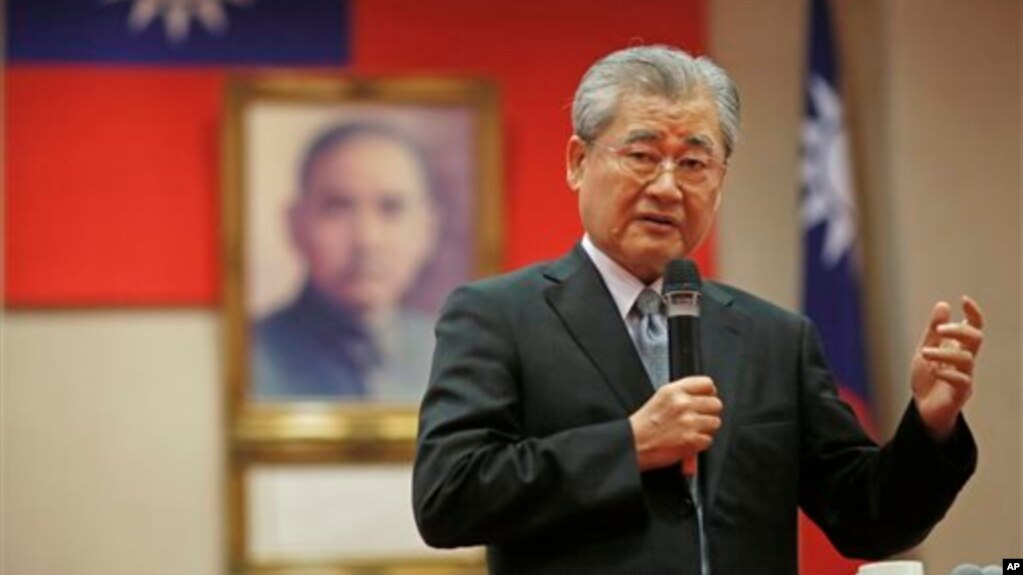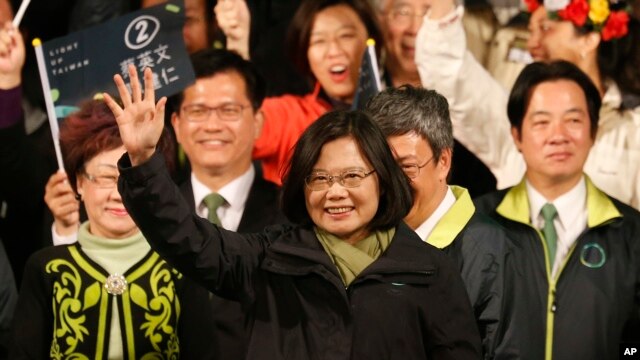
Relations with China are causing political waves in Taiwan after the party opposed to closer ties easily won Saturday’s elections.
Taiwan’s candidate for the Democratic Progressive Party, Tsai Ing-wen, won Saturday’s presidential election with 56 percent of the vote.
Tsai is the first woman to win the island’s presidency.
The opposition Democratic Progressive Party, or DPP, also gained more seats in the island’s legislature than the ruling Nationalist Party.

Tsai’s victory raises question about whether eight years of increased ties with mainland China will end. The DPP has opposed closer links with China and expressed support for independence.
President Ma Ying-Jeou has worked to improve relations with China for years. His efforts resulted in his meeting with Chinese President Xi Jinping in Singapore last November. It was the first meeting between leaders of mainland China and Taiwan since they split after China’s civil war in 1949. China considers Taiwan part of its territory.
Taiwan also has signed a number of trade deals with China.
However, those efforts are thrown into doubt, and ruling party leaders are admitting a change in the public’s will.
Taiwan’s premier has taken leave of his job and says he may not return. Mao Chi-Kuo expressed concern about his ability to govern after voters elected a DPP president and gave it a majority in the legislature.
The premier also asked his cabinet to resign. President Ma is considering whether to give his approval to such a move.
Premier Mao defended his government’s efforts to improve relations with China and economic growth in a speech to the cabinet Monday. He said public opinion has changed. He said he had approached the president to request his resignation to safeguard the work of the future government.
Without his resignation, he said, important decisions would not be possible, affecting development and the people’s happiness.
President Ma, however, is holding off approval of the cabinet’s resignation. He is talking with supporters of the president-elect. They are seeking government ministers that both sides agree could remain after Tsai takes office.
By law, Ma can keep his current cabinet, but Taiwanese presidents often make changes after election losses. The premier’s temporary replacement has said that talks on a possible free trade deal with China would stop if the cabinet resigns.
It is not clear how Tsai’s government would negotiate with China.
After the election, China reasserted its consideration that the self-ruled island is part of China’s territory. It said the democratic vote would not change that “basic fact.”
China has changed a great deal since the last time a DPP candidate won the presidency. China is more powerfully economically and militarily than it was in 2000.
Experts say this means Tsai needs to use restraint in developing the island’s relations with its larger neighbor. But, they point out that the world is watching how China deals with difficult issues at home and near its borders.
These include how it deals with dissent within China, as well as concerns in Hong Kong and conflicting territorial claims in the South China Sea.
The president-elect’s campaign has said she will avoid angering China. Most experts do not expect the dispute between the mainland and Taiwan to intensify, at least before May 20. That is when President-elect Tsai takes office.
I’m Mario Ritter.
This story was adapted from reports by VOA's Bill Ide and reporter Ralph Jennings. Mario Ritter adapted their stories for Learning English. Kathleen Struck was the editor.
Worlds in This Story
take leave – v. to say goodbye; to take time off
restraint – n. to limit; to keep under control
reasserted – v. to state or declare something more strongly; to restate


